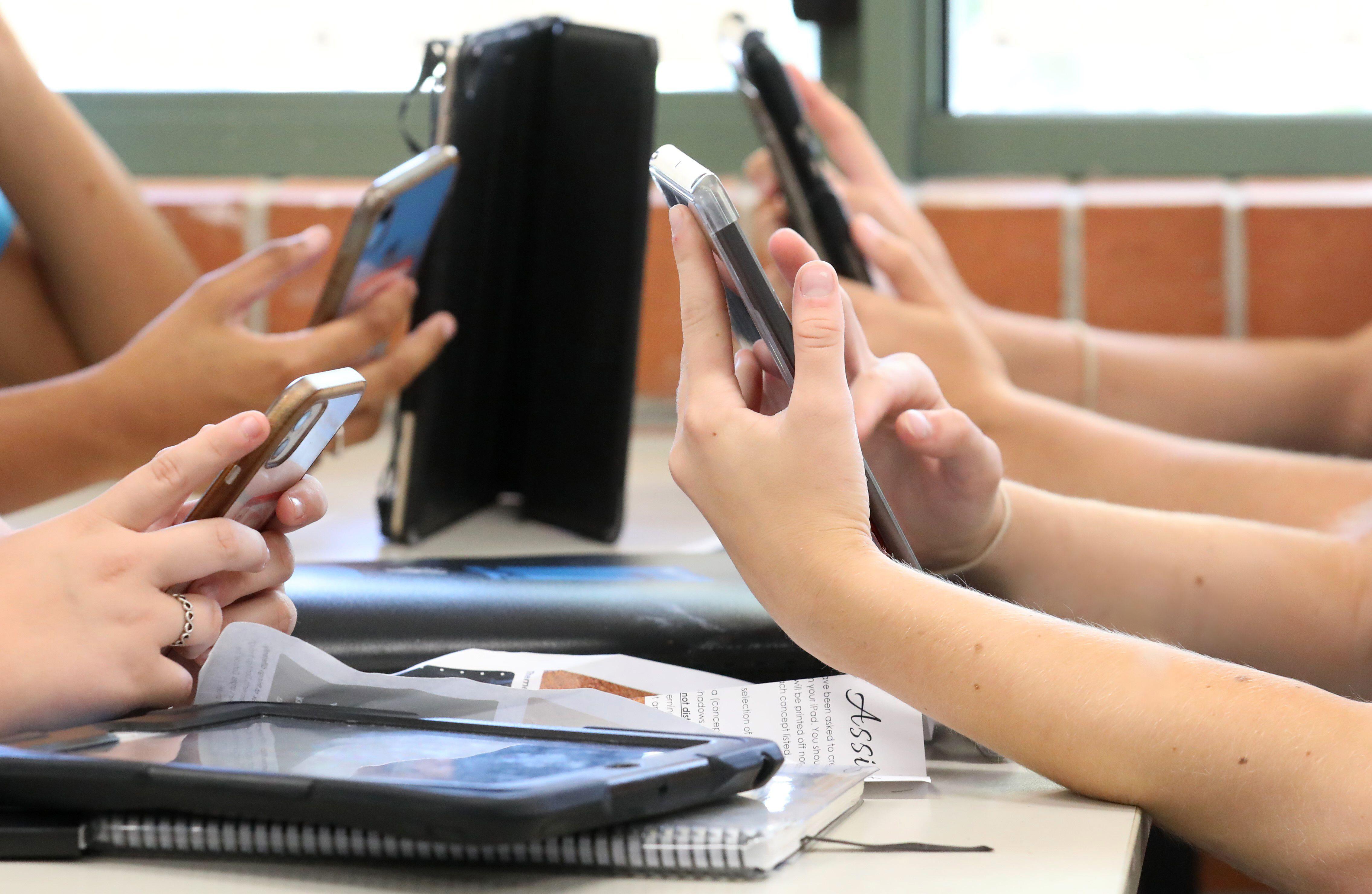
Ian Payne 4am - 7am
31 March 2025, 16:44

Three quarters of the parents questioned said they are concerned about what their children are seeing, hearing or doing online.
More than three-quarters of parents of 11-16 year olds said their child has a screen with internet access in their bedroom, according to a survey carried out in the wake of hit Netflix drama Adolescence.
The show’s co-writer and actor, Stephen Graham, has spoken about how children “can be looking at all kinds of things” nowadays with internet in their bedrooms, compared with a generation before.
Smartphones are the most common devices, followed by tablets and desktop computers or laptops, the exclusive snapshot survey by Ipsos for the PA news agency showed.
Three quarters of the parents questioned said they are concerned about what their children are seeing, hearing or doing online, and 87% said they are not confident they know what content they are viewing.
Asked if their child has a computer or any other screens with access to the internet that they use in their bedroom, 65% of parents said yes.
A total of 622 parents aged 23-65 with a child or children aged between five and 16 in Great Britain were questioned online by Ipsos for PA last week.
The proportion saying their child has a screen with internet access in their bedroom rose to 78% for parents with a child aged between 11 and 16.
Graham, in interviews after the show’s runaway success, has spoken about the huge differences now in what children can do in their bedrooms if they have internet access.
He previously told BBC Radio 4’s Today programme that in his own childhood when he went to his room he could “maybe draw some pictures or I had a Casio little keyboard, we send our kids to their rooms today and the possibilities are endless, especially with the connection to the internet, and they can be looking at all kinds of things.”

When it comes to their children’s safety online, 5% of parents said they do not take any specific protective measures, the survey showed.
Most (61%) said they have had discussions with their children about the risks of online activity, while more than half (55%) said they have parental controls or apps on devices.
About four in 10 (45%) said they restrict when or where their child can use the internet, while a fifth (22%) said they have removed devices from their child when they have had concerns.
Just under a fifth (17%) of parents said they have removed a device from their child’s bedroom.
About six in 10 (61%) of parents said television shows or documentaries about child safety online are likely to prompt them to take extra protective measures, while most (73%) said their children getting older is the main reason for them to put in place additional safety measures.
On smartphones, most parents (about 80%) questioned said they think children should be at least 11 years old before having one for their own personal use.
One in 10 said a child should be 16, while 3% of parents felt seven or eight was an acceptable age.
More than half (54%) said they would support a complete ban on smartphones in schools, while almost a fifth (19%) have confiscated their child’s phone to prevent them taking it to school.
More than a quarter (28%) have told their child not to take their phone to school.

Last week the head of the schools watchdog Ofsted said smartphones should be banned in schools in England.
Last year, under the former Conservative government, schools in England were given non-statutory guidance intended to stop the use of mobile phones during the school day.
In an exchange at Prime Minister’s Questions last week Sir Keir Starmer said a change to the Children’s Wellbeing and Schools Bill to require schools to ban the use of phones was “completely unnecessary”, when challenged by Conservative leader Kemi Badenoch on the issue.
The PM claimed “almost every school” already bans phones, and instead said the focus should be on the content children were consuming.
The NSPCC said the survey response “echoes what we hear consistently through our helpline; parents who are concerned about what their children are viewing on devices, in particular on smartphones, be it at school, when out with their friends and when alone in their bedroom”.
Matthew Sowemimo, the children’s charity’s head of policy for child safety online, said: “While we believe the online world has a vital role to play in young people’s lives, too often the devices they use are serving children harmful and abuse content via social media that can have a detrimental impact on their wellbeing.”
He said tech companies have “dragged their heels when it comes to children’s safety online” and urged them to “invest in effective enforcement of existing age restrictions, better safety-by-design principles and advice for parents and young people to ensure they can use all devices without fear of harm”.